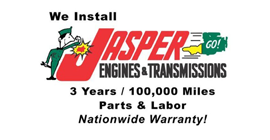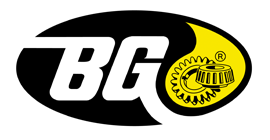AUTONET TV
Archive for November 2020See the Light (Automatic High Beam Dimmers)Posted November 29, 2020 7:38 AMIt's happened to all of us. We're driving down a highway at night and over a crest appears a car with its high beams blazing. You are momentarily blinded, hoping the other driver will switch them to their low beam setting and restore your vision. Not only do we not appreciate being blinded, face it; we don’t want to be that other driver, either. You know, the one who forgets to turn down their high beams. Why do we want high beams in the first place? They can improve safety when used correctly, giving drivers more reaction time since they can see farther down the road. But research has found many drivers either don't use them or, when they do, they frequently forget to switch to low beams. Enter the automatic high-beam dimmer. The quest for the perfect one began back in the 1950s, General Motors invented something it called the "Autronic Eye." It was a phototube which sat on the dashboard and turned down your beams when it saw other headlights. While touted as being the biggest advance in night driving safety in 30 years, it didn't work all that well. But as technology got more advanced, systems improved. Today's automatic high beam dimmers usually have a camera in the rear view mirror (pointing forward). When the camera sees lights, software in the system's computer attempts to determine the source of the light, whether it is an oncoming vehicle, taillights, ambient city lights, street lights or the reflection off of a street sign. It then adjusts the headlights to operate high beams if appropriate or a less-blinding mode if they’re not. Some automakers are striving to make their headlight systems smarter and safer by developing lamps that can avoid blinding oncoming drivers by means other than simply dimming them. One idea? Splitting the beams so they will block just the portion that shines into the eyes of oncoming drivers. It's a long way from the Autronic Eye. Hill's Auto Repair, Inc. No Fountain of Youth (Aging Tires)Posted November 22, 2020 10:51 AMCan you think of anyone who enjoys aging? Wrinkles where you don't want them, gray hair, eyes that won't focus any more, no stamina. Believe it or not, your tires age, too, and they don't get better the older they get. And here's the important thing to know, even if they can still pass a tread depth test, they may simply be too old to be safe Here's the best way to understand this. Have you ever found an old deck of playing cards with a rubber band wrapped around them? Try stretching the rubber band. SNAP! It's all cracked and brittle. And you haven't stressed that rubber one bit since the time you put them in that drawer. Now you know what's happening to your tires. Rubber ages. Just like us, the day we come into the world, we start to go downhill (no pun intended). Oh, engineers are able to make a tire last longer than ever before. But that gas that keeps us alive—oxygen—seems to love to chemically mix with some components in rubber. Oxidation causes rubber to become hard and brittle. The rubber band test. Is there an age test that can tell you when a tire is tool old to roll? Well, not really. They don't all age the same. Hot climates can make tires wear out more quickly. Some experts say a tire can last up to 10 years but should be inspected every year after the age of five. Others say tires should have an expiration date at six years old. Since no one would ever ask a tire its age, how do you know how old one is? Believe it or not, tires made after the year 2000 have a date code stamped on either the inside or the outside of the sidewall. It's a four-digit numbers; the first two tell you the week, the second two tell you the year. So if it has the number 1916, it was made in the 21st week of 2016. Another way to find out if your tires still have enough life in them is to have your vehicle service facility inspect them. They look for signs of age, such as developing cracks in the rubber, the condition of the sidewalls and, of course, that old standby: tread. If it's time to "retire" them, discuss options with your service advisor.
Your Vehicle is Talking to YOU (Service Warning Signs)Posted November 15, 2020 8:39 AMYour vehicle may be like that famous battery bunny, the one that just keeps going and going. But while it may seem sometimes like you never need to take your vehicle in to be worked on, there are some things you should keep your eyes, ears and nose out for. They are warning you about something that needs attention at your vehicle service facility.
An old 80s TV show called "Knight Rider" featured a talking car. You already have a vehicle that's telling you things all the time. Give it a listen and it will keep you going safely down the road for many years to come. Hill's Auto Repair, Inc. Weather Station on Wheels (Vehicle Sensor Maintenance)Posted November 8, 2020 10:26 AMYou probably never thought about it, but your vehicle is like a rolling weather station. It can check the outside temperature, let you know when the roads are slippery and help you deal with rain. And how it does all those things is pretty cool. First, just like any weather station, a vehicle has sensors that measure the driving and weather conditions you find yourself in. Some of those sensors can control computerized systems in your vehicle to react to the weather. It depends on whether you have a 2-wheel, 4-wheel or all-wheel drive vehicle how those sensors will respond. Let's start with temperature. Most vehicles now have a thermometer that measures the temperature outside. It's usually in the front, and likely will tell you on the instrument panel what the outside temperature measures. But a temperature sensor will also tell your vehicle's computers to turn on or off certain systems like the heating or air conditioning. If your ambient temperature sensor isn't working right, some symptoms are a malfunctioning automatic A/C or a temperature display that is way different than the app on your phone says it should be. Your vehicle will also have sensors that measure your speed at each wheel. They work with an onboard computer to measure slippage in any of the wheels so traction control and antilock brakes work correctly in case of slick roads. Your vehicle can measure something called longitudinal and latitudinal acceleration, and it uses a yaw sensor to do it. That helps it determine if you might be in an oversteering or understeering situation. It's important because it works with your vehicle's brakes to apply stopping power to keep you in control. A steering wheel sensor tells the vehicle's computers what the driver is doing with the wheel. It also can work with those wheel sensors to measure how slippery the roads are, whether it be due to a wet (rain) or granular (gravel or sand) surface. By sending different torque or braking to each wheel, it helps the driver maintain control. More and more vehicles now have a rain sensor that can turn on the wipers automatically when they measure precipitation on the windshield. So, you're driving your own weather station, and making sure all this data is coming in properly depends on how each component is working. Regular service and maintenance on these systems is important to make sure they can do their job. Your rolling weather station can't predict the weather, but it can sure help you deal with it, so help it do its job right.
How Much Does It Cost? (Variations in Vehicle Repair Costs)Posted November 1, 2020 11:03 AMEver wonder why it costs so much more to fix a similar problem in two different vehicles? Let's say you now own an SUV and before that, you owned a car. Your SUV's air conditioning system needs a new evaporator, but the cost for the new one is way more than you remember it was for your car. How can there be that big of a difference? There are many reasons. For one thing, vehicles aren't all the same. Yes, they have engines and steering wheels and suspensions, but engineering and design can vary widely among different styles and brands. In the case of replacing the evaporator, the one in your former car may have been located in a spot where the technician could get to it easily. Plus, the part may have been less complicated and, therefore, cheaper. Your SUV may require the entire dashboard to be removed with special tools to detach the a/c lines from the evaporator. Plus, since it is supplying cool air to a bigger cabin, it may be more complicated; the part itself may cost quite a bit more. But you're not an expert, so how do you know the price is fair? This is where it helps to establish a good, long-lasting relationship with a reputable service repair facility. They know you, they know your vehicle and they value keeping you as a customer. A facility that doesn't care about repeat business may try to suggest more repairs than are needed or inflate their prices. But those shops are unlikely to stay in business very long since their reputation gets around. If you've been taking your vehicles to the same shop for several years, you've had experience with them and know their policy on labor costs and parts prices. At some point you may wonder if it's worth it to keep putting money into your vehicle, and if you know your service advisor, you have developed a trust for his or her advice. Keep this in mind, too. Vehicle designers and engineers have made significant progress in things like powertrain technology and rust prevention. That means today's vehicles are meant to last longer. One study in a major consumer magazine shows that if you can keep your vehicle on the road for 200,000 miles/320,000 km, an average of 15 years, some vehicles can save you up to $30,000 or more. Investing in repairs can make a lot of sense. Hill's Auto Repair, Inc. | ||
SearchArchiveSeptember 2011 (18)October 2011 (3) November 2011 (5) December 2011 (4) January 2012 (5) February 2012 (3) March 2012 (5) April 2012 (4) May 2012 (5) June 2012 (4) July 2012 (4) August 2012 (5) September 2012 (4) October 2012 (5) November 2012 (4) December 2012 (4) January 2013 (4) February 2013 (4) March 2013 (4) April 2013 (4) May 2013 (5) June 2013 (4) July 2013 (4) August 2013 (4) September 2013 (5) October 2013 (5) November 2013 (4) December 2013 (4) January 2014 (5) February 2014 (4) March 2014 (4) April 2014 (4) May 2014 (5) June 2014 (4) July 2014 (4) August 2014 (5) September 2014 (4) October 2014 (5) November 2014 (4) December 2014 (5) January 2015 (4) February 2015 (4) March 2015 (4) April 2015 (5) May 2015 (2) June 2015 (6) July 2015 (4) August 2015 (5) September 2015 (4) October 2015 (5) November 2015 (4) December 2015 (3) February 2016 (1) March 2016 (7) April 2016 (4) May 2016 (5) June 2016 (4) July 2016 (5) August 2016 (4) September 2016 (4) October 2016 (4) November 2016 (5) December 2016 (4) January 2017 (5) February 2017 (3) March 2017 (5) April 2017 (4) May 2017 (5) June 2017 (4) July 2017 (5) August 2017 (3) September 2017 (3) October 2017 (5) November 2017 (4) December 2017 (3) January 2018 (5) February 2018 (4) March 2018 (4) April 2018 (4) May 2018 (5) June 2018 (4) July 2018 (5) August 2018 (4) September 2018 (4) October 2018 (4) November 2018 (4) December 2018 (5) January 2019 (5) February 2019 (1) March 2019 (4) May 2019 (2) June 2019 (5) July 2019 (2) August 2019 (2) September 2019 (3) October 2019 (5) November 2019 (4) December 2019 (5) January 2020 (5) February 2020 (4) March 2020 (5) April 2020 (1) May 2020 (2) June 2020 (1) July 2020 (1) August 2020 (5) September 2020 (4) October 2020 (4) November 2020 (5) December 2020 (4) January 2021 (6) February 2021 (4) March 2021 (4) April 2021 (4) May 2021 (5) June 2021 (4) July 2021 (4) August 2021 (5) September 2021 (4) October 2021 (5) November 2021 (4) December 2021 (4) January 2022 (6) February 2022 (4) March 2022 (4) April 2022 (4) May 2022 (5) June 2022 (4) July 2022 (5) August 2022 (2) September 2022 (4) October 2022 (5) November 2022 (4) December 2022 (4) January 2023 (5) February 2023 (4) March 2023 (4) April 2023 (5) May 2023 (4) June 2023 (4) July 2023 (5) August 2023 (4) September 2023 (2) October 2023 (1) January 2024 (1) February 2024 (4) April 2024 (1) May 2024 (1) | CategoriesTires and Wheels (42)Maintenance (59)Warranty (2)Fuel System (48)Exhaust (12)Differential Service (4)Cabin Air Filter (8)Air Conditioning (17)Steering (17)Fluids (17)Cooling System (20)Shocks & Struts (11)Trip Inspection (4)Brakes (22)Older Vehicles (4)Service Intervals (10)Alignment (16)Monitoring System (3)Dashboard (3)Inspection (10)Service Standards (13)Windshield Wipers (9)Parts (8)Transmission (11)Drive Train (9)Safety (6)Timing Belt (6)Battery (20)Automotive News (8)Tire Rotation and Balancing (4)Headlamps (6)Diagnostics (5)Diesel Maintenance (2)Engine Air Filter (2)Suspension (3)Winter Prep (7)Keys to a long lasting vehicle (4)Fuel Economy (10)Auto Safety (6)Serpentine Belt (6)Alternator (6)Emergency Items (1)Check Engine Light (6)What Customers Should Know (81)Fuel Saving Tip: Slow Down (2)Wheel Bearings (1)Customer Detective Work (1)Oil Change (7)Safe Driving (1)Tires (10)Water Pump (1)Winter Tires (1)Spark Plugs (2)TPMS (3)Brake Service (4)Fuel Pump (1)PCV Valve (2)Transfer Case Service (1)Shocks and Struts (1) | |










